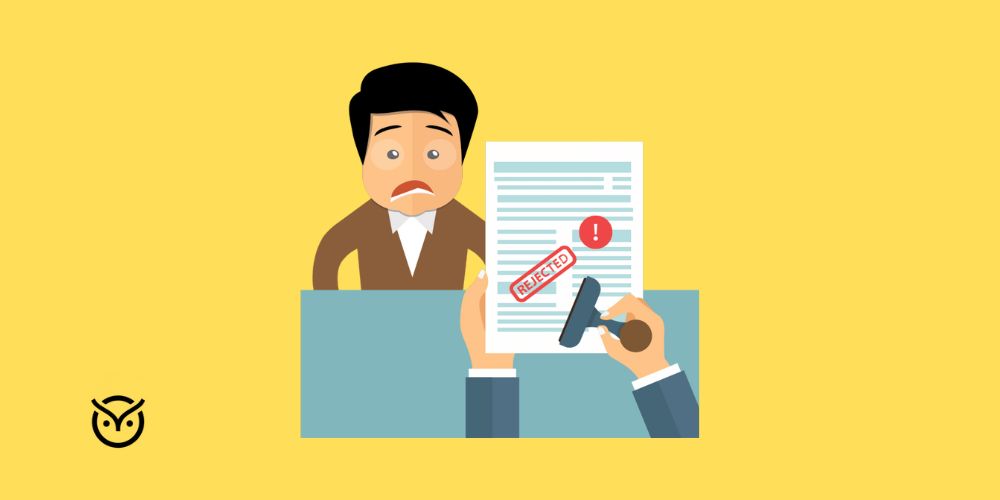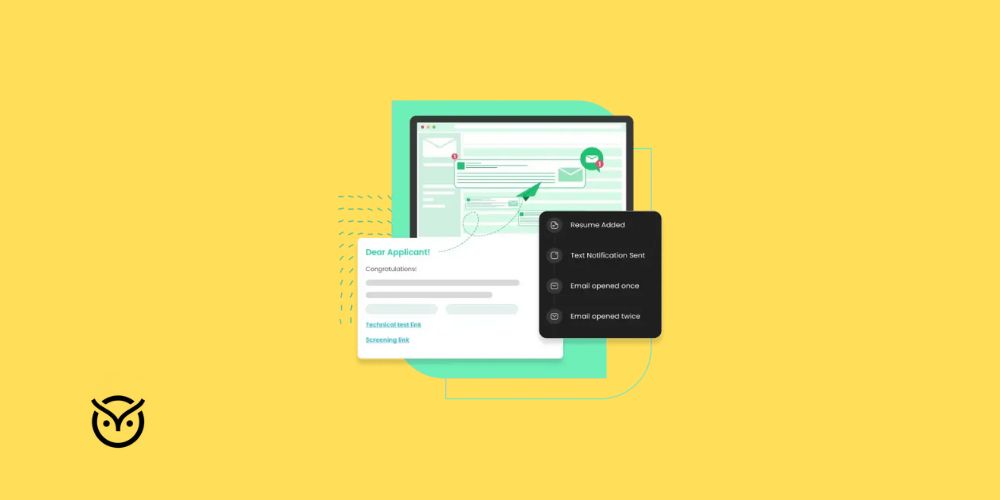
TL;DR
- Signs you didn’t get the job after the interview can manifest as silence past the deadline.
- Employers keep feedback vague, so don’t assume rejection.
- Spotting signs you will not get the job offer helps you improve your interview skills.
- Prepare for an interview, follow up, and keep applying.
You’ve sat through interviews, felt hopeful but then… nothing. That’s one of the most confusing moments job hunters face. You’re left wondering, “Are these signs you didn’t get the job?” It’s tough when employers go quiet, leaving thoughts spinning in your head. This article will shine a light on those subtle cues and help you understand what they might mean without jumping to panic.
In this blog, you’ll learn why employers often stay vague, what real hints to watch for, and how to turn your unease into action. Think of this as your roadmap to not just surviving job rejections but sharpening your job hunt moves as you go.
Why Employers Don’t Always Give Clear Feedback

One key reason employers stay tight-lipped is sheer volume. Up to 72 percent of applicants complain about a negative candidate experience, and one of the reasons is that they never hear back from the employers at all, even after interviews. So clear feedback often falls by the wayside.
When feedback does come, it’s usually brief or generic. Many hiring teams worry about legal exposure or don’t want to appear biased. Yet candidates want more. According to a 2025 report, 94 percent of professionals still want feedback after an interview, even if they’re rejected.
This mismatch happens because recruiting teams juggle many tasks from sourcing to interviewing to closing offers. They’re part of the broader talent acquisition process, and many lack the bandwidth to craft detailed notes. They might copy-paste short replies or send a boilerplate “not retained” message, or worse, nothing at all.
Despite this, offering feedback is a small gesture that makes a big impact. Many candidates would actually reconsider applying to the same company later if they knew why they weren’t selected.
Why Employers Don’t Always Give Clear Feedback
Click any item in the inbox. The full message opens below the list.
Your message will appear in this space. It stays visible even when you scroll the list.
Subtle Signs You Didn’t Get the Job After the Interview

Sometimes it’s not obvious whether things went well or not. But there are certain red flags you can quietly pick up on. Here are the most common ones:
The Interview Wraps Up Too Quickly
If your session ends much earlier than scheduled, that’s often a subtle signal. Hiring managers usually stretch time when they’re genuinely interested in you. A short, rushed ending could point to them already leaning toward other candidates.
No Mention of Next Steps
An encouraging sign is when they outline the timeline clearly, like “we’ll call you by Friday.” If you leave without any roadmap, it could mean they’re hesitant. Many job seekers even swap notes on signs you didn’t get the job on platforms like Reddit, and this one often comes up.
Vague or Cold Body Language
Engaged nods, note-taking, and active questions are positives. If instead you see crossed arms, little eye contact, or disinterest, it could be one of the signs you will not get the job offer.
Lack of Follow-Up Communication
Silence after a reasonable waiting period is another tell. HR professionals say they sometimes mark candidates as no longer under consideration in their systems but forget to notify them directly.
You’re Asked Strange or Off-Track Questions
Sometimes you’ll hear questions that don’t match the role or your skills. This could mean they’re filling time because they already know you’re not the top pick.
Generic Email Responses
If you later receive an email with wording like “not retained job application meaning” or boilerplate notes, that’s often an automated rejection. Phrases like “what does not indicated mean” or “what does not retained mean” usually show up in tracking systems rather than human notes.
What These Signs Actually Mean (Don’t Panic Yet)

Here’s the good news: None of the above is a guarantee you’ve lost the role. Hiring processes are messy, and the absence of feedback doesn’t automatically spell rejection.
For instance, a short interview might be due to scheduling conflicts. Or a delayed response may stem from internal shifts.
Silence can also mean you’re still in the running. Sometimes recruiters wait until their first choice formally accepts before updating others. That’s why people still wonder how to tell if an interview went well, because the same signs can mean different things.
The bottom line is that you shouldn’t assume rejection until you have it in writing. Many candidates worry about how you know you didn’t get the job, but the truth is, you often can’t until official communication arrives.
What These Signs Actually Mean
Pick one option for each item. You will see an instant explainer. Reset to try again.
-
No follow up one week after the stated date
-
Interview ended much earlier than scheduled
-
Portal shows no longer under consideration
-
Interviewer gave vague next steps
-
Automated status shows not retained
-
Interviewer seemed distracted during the call
What to Do If You Suspect You Didn’t Get the Job

So what’s the best move when doubts creep in? Sitting still won’t help. Here’s a practical playbook:
Follow Up Politely
Wait a few days beyond the date they mentioned, or about a week if no date was given. Send a short professional note that thanks them and asks if they need anything else. This keeps you on their radar without being pushy.
Keep Applying Elsewhere
Never pin your hopes on one role. Even if you believe you nailed it you should continue applying. The best candidates balance confidence with momentum. Treat each rejection as fuel to improve interview skills for the next round.
Review and Reflect
Write down what you felt went well and what did not. This is how you steadily prepare for an interview more effectively. Small adjustments like sharper examples or clearer answers can make a real difference.
Expand Your Network
Engage with professionals in your field. Ask mentors, ex-colleagues, or recruiters for advice. A strong network is often what opens doors when applications stall.
Ask for Feedback (Tactfully)
If the company does eventually say you weren’t chosen, politely ask what influenced their decision. While you may only get generic notes, sometimes you’ll receive valuable insight. And remember: rejection is just part of the talent acquisition process.
Conclusion
Rejection stings, especially when it’s wrapped in silence and vague signs. But the truth is, even when you notice possible signs you didn’t get the job, it doesn’t define your career. Every interview is practice, every rejection is data, and every delay is a reminder that the hiring game isn’t always fair. What you can control is how you respond by refining your answers, learning from each step, and keeping your momentum alive. The more you adapt, the stronger you’ll become in every future conversation with employers.
FAQs
If the recruiter gave a timeline, wait a few days past that before checking in. If no timeline was mentioned, one week after your interview is usually a safe point to follow up politely.
Not always. Some companies send formal rejection emails, while others update your status as “not retained” in their system without telling you directly. That’s why following up matters as it gives you clarity.
Yes. Many candidates underestimate themselves. Employers may see strengths you didn’t realize you showed. Unless you get an official “no,” you’re still in the running.




